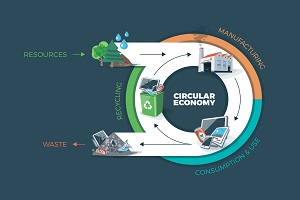
Innovation is central to build back better after the COVID-19 pandemic and to drive sustainable development. Making up over 10% of Gross Domestic Product globally, public procurement carries the potential to stimulate broad experimentation with new ideas and technologies to attain economic, social, and environmental objectives, including the transition to the circular economy.
Yet, only a fraction of procurement spending targets innovation systematically, and few countries engage in “innovation-enhancing procurement”. The latter is public procurement whose aim is not so much to develop specific pre-determined, new products or services, but rather to find innovative solutions to address societal problems.
On 23 October, as part of the informal consultations of the UNECE Team of Specialists on Innovation and Competitiveness Policies, policy makers and experts from academia, think tanks and the private sector explored best possible approaches and practices on innovation-enhancing procurement in the UNECE region.
Discussions revealed to key factors for innovation-enhancing procurement to work: first, evaluation criteria and payment streams should be clearly linked to performance indicators; and second, tenders should be formulated around the envisaged impact, creating ample room for bidders to come up with different solutions to achieve that impact.
While many of the experiences shared during the UNECE meeting were those of countries with advanced economies, experts gave particular attention to countries with economies in transition, who face specific challenges and barriers when aiming to harness innovation-enhancing procurement for sustainable development. These include the lack of appropriate legal frameworks, risk aversion, entrenched interests, as well as insufficient institutional capacity and political will. It is clear that different national needs call for different solutions and approaches.
Adapting and reforming legal frameworks should be the first point of call, equally relevant for countries at all levels of development. An enabling legal framework should ensure procedural fairness and non-discrimination and allow for experimentation around environmental, circular and socio-economic objectives. Sustainability and innovation-criteria, costs reflecting externalities and a life-cycle-approach are also needed to promote the circular economy and foster innovation for sustainable development. Public procurement should be a leading feature in broader national environmental and digital strategies, as it currently is in case of the EU European Green Deal.
Moreover, public agencies should know and understand the market. Governments need to employ purchasing strategies and ensure dialogue with innovators and investors, including small and medium-sized enterprises (SMEs).
Finally, governments also need to improve the skills and capacity of public procurement institutions, enhance data collection, and monitor and evaluate results and risks continually. New forms of partnerships and cooperation both at the national level between buyers and suppliers, and at regional and international level, are crucial to overcome challenges.
The recommendations and best practices identified at the meeting will be part of a UNECE policy paper on innovation-enhancing procurement which will feed into the 65th session of the Commission in April 2021, dedicated to the transition to a circular economy.
For more information, click here.

